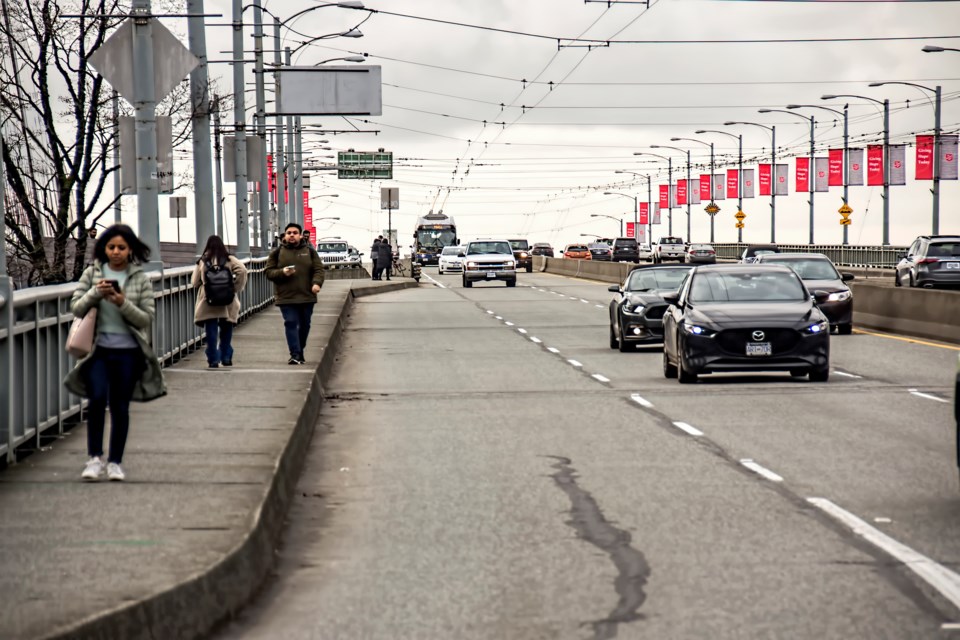The City of Vancouver is telling the public that the Granville Bridge "does not pose [a] safety risk to the public" despite the city filing a notice of civil claim Feb. 14 against companies hired to perform work on the 70-year-old structure.
“The city would like to assure the public that the Granville Street Bridge does not pose any structural safety risks to the public," the city said today in a statement. "Public safety remains the city's highest priority."
The city's lawsuit said the bridge posed a "real and substantial danger" to the public. The city today said that its lawsuit's wording "without context has raised concerns."
It then added that this language "is a legal requirement for the claim" and that "the defective work outlined in the civil claim does not pose an immediate risk to the public."
The city's lawsuit listed Associated Engineering (B.C.) Ltd., Graham Infrastructure LP and Ross Rex Industrial Painters Ltd. as defendants.
The city said that between 2019 and 2021 it completed a rehabilitation project for the bridge, which had elements including replacing expansion joints that connected various segments of the bridge. The project also involved installing rubber troughs underneath some of those expansion joints among other work, such as recoating structural steel members underneath the expansion joints, according to the lawsuit.
Graham Infrastructure was the general contractor whereas Associated Engineering was an engineering consultant and Ross Rex was the painting and coating subcontractor, the city said.
The city's lawsuit lists "defects and/or deficiencies in the work" that included but were not limited to:
• the recoating work, which was supposed to include applying penetrating sealer in specific areas but that work was not performed;
• the recoating work, which also omitted applying caulking, where caulking was "required";
• work related to the expansion joints and surrounding asphalt, which allow for an unintended ingress of water, debris and substances such as road salt, which could run off through various components of the expansion joints and onto the structural members of the Granville Bridge below;
• rubber troughs, which do not function as intended in that they overrun and clog and otherwise allow for unintended amounts of runoff to flow onto unintended locations, including structural members of the Granville Bridge below; and
• other particulars as counsel may advise or prove at trial.
The city's lawsuit alleges that defects have caused and continue to cause damage, such as corrosion and degradation of areas of the Granville Bridge that were part of the recoating part of the work. Specifically, that corrosion and degradation is present in structural steel members of the Granville Bridge in and around the areas that were part of the recoating work. Bolts securing expansion joints to the Granville Bridge deck surface have also corroded and are degraded, the city alleges. Structural steel members of the bridge have also degraded and corroded, it added.
"The defects/deficiencies and resultant damage pose a real and substantial danger ... to members of the public who use the Granville Bridge, and the city's employees, contractors and representatives," the city said in its lawsuit.
The city is suffering, or will suffer, costs to repair the work and remedy "dangerous conditions," it said in its lawsuit.
As such, it is seeking an unspecified amount of damages plus interest.
It claims that the defendants Associated Engineering and Graham "breached their respective obligations" under a contract.
None of the city's allegations have been proven in court.
The defendants have all yet to file responses to the city's notice of civil claim.



